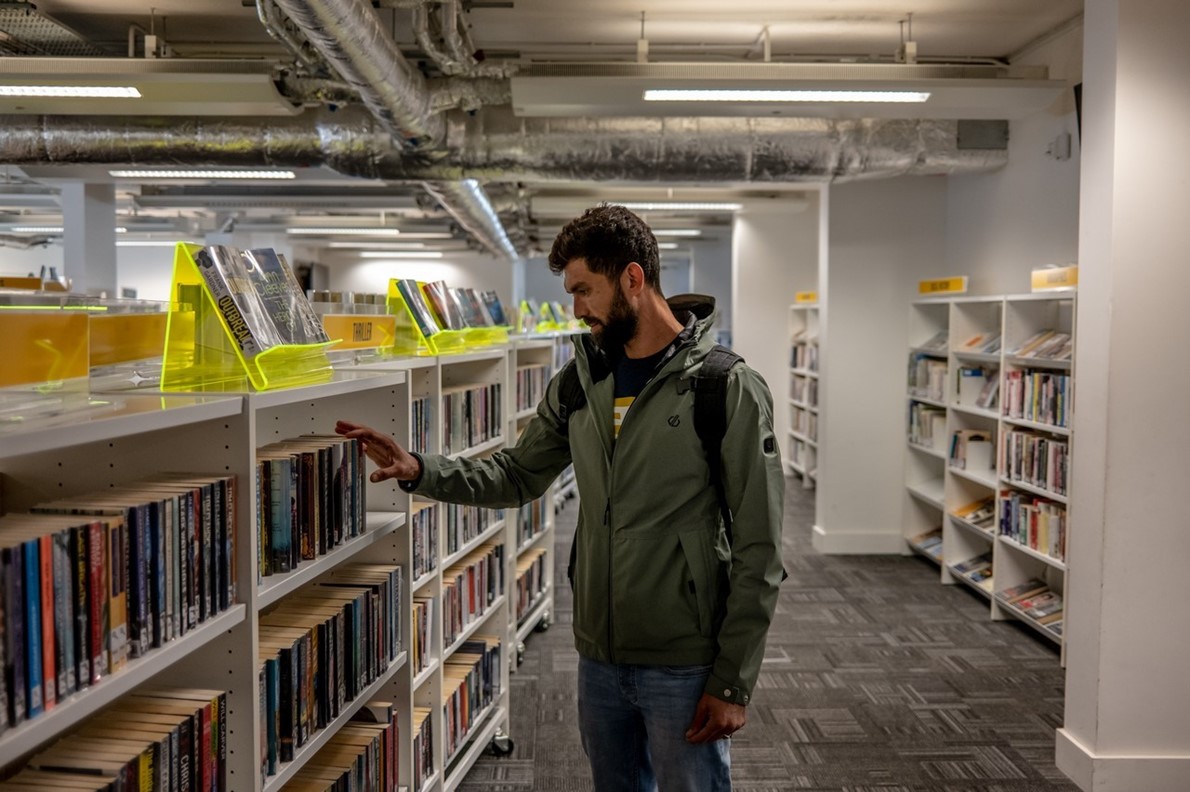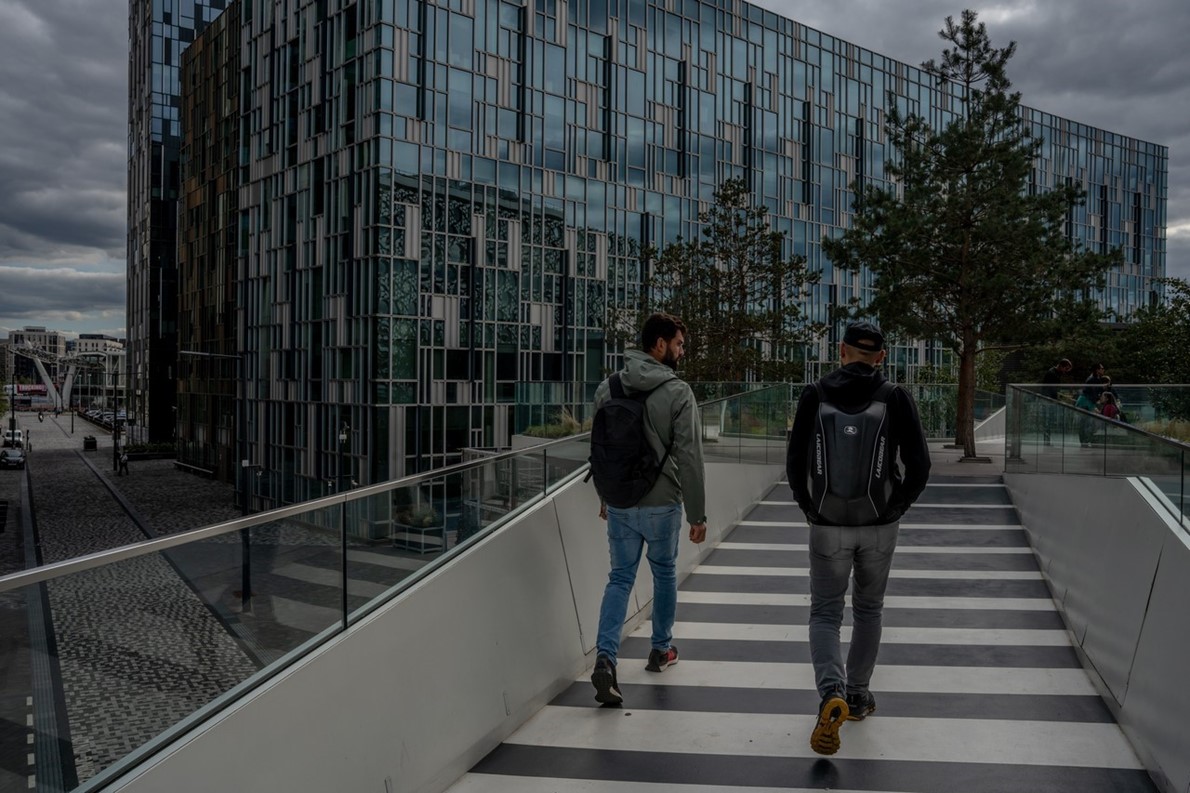LONDON — In a small church hall last spring in
East London,
about two dozen people who had fled the war in Ukraine drank tea and shared
lunch as they tried to meet members of their new community.
اضافة اعلان
Among them were two young men, Abdul Safwa and
Muhsen Hamed, who smiled and chatted away with the group in Russian and
snippets of Ukrainian as they shared their harrowing experiences.
But unlike the
others gathered for the lunch, this was the second time the men had been
displaced: first from their home country,
Syria, and then from Ukraine, where
they had spent the past decade living in limbo.
“I still don’t know if I can stay here or not,” said
Safwa, detailing how they had both applied for asylum in Britain. “How will
they act with us? Will they treat us like Ukrainians or Syrians?”
More than seven million people have fled Ukraine
since Russia invaded it in late February, according to figures from the United
Nations High Commissioner for Refugees. The vast majority were Ukrainian
nationals eligible for a plan for temporary resettlement in Britain through the
Homes for Ukrainians visa program.
European Union countries have also offered
temporary, visa-free protections for those who have fled the war.
But among those who fled were also people such as
Safwa and Hamed whose status falls into a gray area, and whose search for a
safe and prosperous place to build new lives has been complicated. And in some
countries, including Britain, they receive more limited support than Ukrainian
citizens who fled the same war as they try to pick up the pieces of their
lives.
Without Ukrainian citizenship, the men were
ineligible to apply for the visa programs that offer temporary resettlement to
those who fled the war in Ukraine. Instead, they surreptitiously entered
Britain through Ireland — which has allowed for visa-free travel for those
fleeing the war — and then applied for asylum.
Shabia Mantoo, a global spokesperson for the
UN refugee agency, said the phenomenon of people fleeing more than one conflict in
this way — known as multiple displacement — is incredibly challenging and
increasingly common as the number of people displaced by war continues to rise
globally. “It’s a really precarious situation,” she said.
Safwa and Hamed were students in Ukraine when
Syria’s civil war began in 2011, and they chose not to return home out of fear
that they would be conscripted.
Hamed had been studying at the National Maritime
Academy in the southern Ukrainian city of Odesa since 2009, in the hopes of
becoming a sailor and then a captain. When war began in Syria, he applied for
asylum in Ukraine.
But he and Safwa, who became friends in Odesa, found
themselves living in limbo. They never received full refugee status in Ukraine,
which would have allowed them to eventually become citizens, but, rather, were
granted the more limited “humanitarian protection” status.
As a result, Hamed could not get the necessary hours
of experience on a boat to become a captain. They were able to work but could
not leave the country, even to see family members who had also fled Syria. And
then, when Russia invaded Ukraine, they found themselves refugees once more.

“My family told me, ‘We saw what happened in Syria.
Do not stay’,” Hamed said. So, days after the war began on February 24, he and
four friends boarded a packed train headed west toward the Polish border.
Eventually, they crossed it by car.
Safwa had been living in
Kyiv, Ukraine’s capital,
when the war broke out. He had spent years trying to restart his life,
establishing a successful tourism business. That all evaporated overnight, and
he knew he had to leave, fearing a prolonged conflict in Ukraine.
“We know Russia from what it did to Syria. It’s not
new to us,” Safwa said. “They don’t care about the civilian people, who is in
the army, who is a civilian. They bomb everybody. I realized this immediately,
and I made my decision. I decided I would escape.”
He drove to Poland with neighbors the day after the
invasion began. Then he heard from Hamed.
Together, the men eventually decided to travel on to
Britain. They thought it would offer them the best chance to start over because
they both speak some English and have family connections in the country. But to
get there, they had to circumvent visa requirements, which is why they traveled
first to Ireland, which had looser restrictions for refugees from the war in
Ukraine. Then they crossed the open border into Northern Ireland, which is part
of the United Kingdom.

Hamed and Safwa applied for asylum when they arrived
in England, in mid-March.
“I told them I don’t have anywhere to go back to,”
Hamed said of the immigration agents with Britain’s Home Office handling his
asylum request. “I wanted to apply for asylum because I don’t have any home
anywhere.
The men know of a handful of other Syrians who took
a similar route to Britain from Ukraine. Initially, the Home Office had allowed
only Ukrainians living in Britain to sponsor family members fleeing the war.
But in the spring, it introduced a second program, one that allows Ukrainians
who do not have family members in Britain to be sponsored by a resident and
lets them remain in the country for up to three years.
The Home Office is responsible for Britain’s asylum
system and has increasingly taken action to stamp out the use of irregular
routes into the country by those fleeing war — including trying to impose a
number of policies that have been criticized by human rights groups and experts
in international asylum norms.
A plan to deport asylum-seekers to Rwanda has been
denounced by the UN refugee agency and challenged in Britain’s high court.
The Home Office declined to weigh in on the
particulars of Safwa’s and Hamed’s cases, as is its policy, but it pointed to
the government’s existing policies for Ukrainian citizens seeking temporary
refuge in Britain.
“People should claim asylum in the first country
they reach or, for those in need of our protection, using one of our safe and
legal routes to come to the UK,” the Home Office said in a statement.
Asylum-seekers like Safwa and Hamed often linger in
Britain’s asylum system, awaiting a decision on claims that could take months
or even years to resolve.
Until then, they are housed in hostels or hotels,
provided with food, and given eight pounds sterling per week, or about $9, to
buy basic essentials and pay for public transportation. But they are unable to
work, something Safwa and Hamed say they are eager to do.
“They told me, ‘You can’t work,’” Safwa said. “They
give us this hotel, they give us food, but why? Just let us work.”
For now, they spend their days taking English
classes, visiting the gym, and getting familiar with London. Hamed has been
reading Sherlock Holmes books to improve his English and often takes walks
along the River Thames near the National Maritime Museum in Greenwich. He still
dreams of becoming a captain.
“Because I am a sailor, and I wish to one day work in this
job,” he said of his frequent visits. “So when I visit the museum, it makes me
a little bit happier.”
Read more Odd and Bizarre
Jordan News



